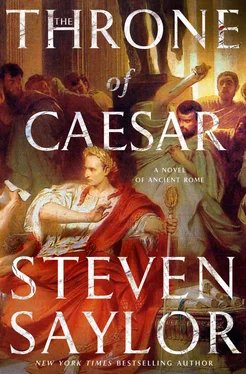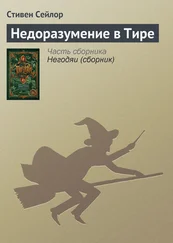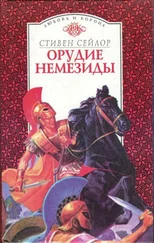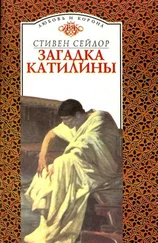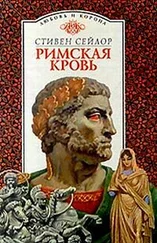Стивен Сейлор - The Throne of Caesar
Здесь есть возможность читать онлайн «Стивен Сейлор - The Throne of Caesar» весь текст электронной книги совершенно бесплатно (целиком полную версию без сокращений). В некоторых случаях можно слушать аудио, скачать через торрент в формате fb2 и присутствует краткое содержание. Год выпуска: 2018, Издательство: St. Martin's Press, Жанр: Исторический детектив, на английском языке. Описание произведения, (предисловие) а так же отзывы посетителей доступны на портале библиотеки ЛибКат.
- Название:The Throne of Caesar
- Автор:
- Издательство:St. Martin's Press
- Жанр:
- Год:2018
- ISBN:нет данных
- Рейтинг книги:5 / 5. Голосов: 1
-
Избранное:Добавить в избранное
- Отзывы:
-
Ваша оценка:
- 100
- 1
- 2
- 3
- 4
- 5
The Throne of Caesar: краткое содержание, описание и аннотация
Предлагаем к чтению аннотацию, описание, краткое содержание или предисловие (зависит от того, что написал сам автор книги «The Throne of Caesar»). Если вы не нашли необходимую информацию о книге — напишите в комментариях, мы постараемся отыскать её.
The Throne of Caesar — читать онлайн бесплатно полную книгу (весь текст) целиком
Ниже представлен текст книги, разбитый по страницам. Система сохранения места последней прочитанной страницы, позволяет с удобством читать онлайн бесплатно книгу «The Throne of Caesar», без необходимости каждый раз заново искать на чём Вы остановились. Поставьте закладку, и сможете в любой момент перейти на страницу, на которой закончили чтение.
Интервал:
Закладка:
The king was intrigued. Estranged from the queen, he had grown restless and randy. How old was the girl? “The same age as your daughter,” said the nursemaid, “and a virgin.” The king felt a sharp stirring of lust. From time to time, looking at his budding young daughter, he had felt such a stirring and had always quickly suppressed it. But here was a girl as young as Zmyrna and almost as lovely, ready and eager to give herself to him. He told the nursemaid to bring the girl to him at the same hour the next night .
But there was a condition, the nursemaid explained. The girl wished to give herself in darkness, so that Cinyras would never see her face, and also to give herself in silence, so that he would never hear her voice. She wished to keep her identity a secret, even to the king. Cinyras frowned at this, but the nursemaid told him it was for his own protection. If in the future he happened to confront the girl in some public place, the least glint of recognition might reveal his transgression to the queen. No telltale expression could give him away if he never saw the girl’s face or heard her voice. The king agreed, and from that hour onward his every waking thought was bent toward the upcoming assignation.
The next night, the nursemaid bathed Zmyrna, brushed her long hair, anointed her with sweet-smelling oils, and pulled a loose sleeping gown over her shoulders. Quivering with anticipation, Zmyrna allowed the nursemaid to lead her through the dark hallways to her father’s bedchamber. The nursemaid opened the door and stepped inside. At once she saw a patch of moonlight on the floor and feared it might be bright enough to illuminate Zmyrna’s face. But even the night sky seemed determined to assist the plot; either that, or from shame, as Cinna wrote, “the silver moon vanished from the sky, and the stars hid behind black clouds.”
The old woman led Zmyrna into the dark room. “Take her, Your Majesty,” she said in a hoarse whisper. “The girl is yours.” The nurse withdrew.
In darkness, Cinyras rose from his bed. His groping hands touched the girl’s shoulders. He lifted the sleeping gown over her head, then touched her naked body. He pulled her to the bed.
The girl spoke only in whimpers and sighs. Cinyras gave her cooing words of encouragement. “My sweet little girl,” he called her, as he had many times called Zmyrna, and he felt the girl shiver beneath him. She broke her silence and cried out, “Papa!” But her voice in that instant was so strained that he failed to recognize it, and the word itself did not alarm him; it incited him to greater lust. What else should the girl call him—“Your Majesty” or “King Cinyras”? Let her call him “Papa” if she wished. Again he called her “My sweet little girl,” and held her more tightly .
When the act was done, Zmyrna left the bed, found her sleeping gown on the floor, and fled back to her room.
In the morning, Cinyras saw a spot of blood on the bedsheet and knew in truth the girl had been a virgin.
The deed was done. But that was not the end. As happens when lust is fresh between two lovers, the appetite of both was only heightened by their first encounter. They were eager to meet again. With the nurse as their go-between, Zmyrna came to her father the next night, and then again the next.
It was at this third meeting, after the act of love, that the king, keenly wishing to see his new beloved, retrieved from an adjoining room a lamp with many flames and brought it to the bedside. The flickering light revealed his naked daughter. She lay with her limbs outstretched and a slack expression on her face, the very picture of passion spent.
Cinyras realized that he had been tricked—by the nurse, by Zmyrna, by his own reckless lust. Horrified, he reached for his sword, which hung on a nearby wall, and unsheathed it. Before Zmyrna’s startled eyes and to the sound of her screams, Cinyras cut himself open and fell on the glittering blade.
The nursemaid came running. She saw the corpse on the floor. She swooned. Mad with grief, undone by guilt and shame, Zmyrna fled naked from the room.
Zmyrna ran. Darkness surrounded her. The walls of the palace seemed to melt away. Only an infinite and starless night lay all around her. Across the black sky she ran, and across the sea; across mountains and vast stretches of sand. As she ran, she cried aloud to heaven, begging the gods to give her …
Not life—she could not face the living, especially her mother;
Not death—she could not face the dead, especially … the other.
What then? Death without death? Life without life?
What place for her, who had lain with her father as wife?
At last, utterly exhausted, Zmyrna began to falter and stumble. How long had she run? For months, it seemed. How far had she fled? Many hundreds of miles. Canyons of red stone surrounded her, as did parched riverbeds choked with sand. In this barren place, she dropped to her knees. Stern Venus, looking down, at last took pity on her. Zmyrna shuddered, and then …
“And then what?” I said, lowering the book to my lap, for the scroll had come to an end, with the poem in midsentence. There was no more papyrus to unroll, no more words to read. “What in Hades happens next?”
XXII
“Let me see.” Meto took the scroll from me. “You’re right. The end of the poem is missing.”
“Curse that bookseller! He sold me a defective copy.”
“Yes, he did. Well, we shall have to go back in the morning and ask for—”
“But don’t you remember? He said he would have no more copies of the Zmyrna for at least a month.”
“Ah, yes, so he did.”
“Well, this is very frustrating.” I looked about the room, fully aware of my surroundings for the first time since our reading began. The jarring exit from the world of the Zmyrna was disorienting. I longed to still be immersed in the web of language spun by Cinna. And I felt greatly cheated that I had not been allowed to reach the climax.
“I suppose I could tell you how it ends,” said Meto, frowning. “I’m not sure how many lines I can recite with complete accuracy—”
“Settle for a paraphrase? I think not. Having read thus far, I intend to read, or have recited to me, the rest of the poem, exactly as it was written. I want to know the whole work, word for word. How otherwise will I know what to make of it? ”
Meto smiled. “Would that every literary critic was as scrupulous as you, Papa. Many readers seem to think they’re entitled to have an opinion about a book before they’ve finished it—sometimes before they’ve started it. Indeed, the less they know, the stronger their opinion.” He shook his head. “But you can’t wait a month to read the rest. Surely we know someone who owns a copy.” He turned the scroll in his hands, looking thoughtful. “Caesar has a copy, of course, but I’m not sure in which house he keeps it. And he shall be very busy tomorrow, as shall I…”
“Caesar? We needn’t bother him. I shall go straight to the poet himself.”
“Of course. Why didn’t I think of that? Cinna’s sure to have an extra copy that he can loan you—”
“An extra copy? For me to read? No. I shall ask him to recite the ending for me himself.”
“Are you sure you want that?”
“Why not? He’ll be delighted to do so. He’s always after me to read the Zmyrna —”
“I’m sure he’d gladly recite the whole thing to you if you asked. Poets live to recite their work. But consider: He’s likely to be looking at your face the whole time. He’ll see exactly what you’re thinking. Do you want that?” Meto looked at me curiously. “Just what do you think of the poem, Papa?”
“Unfair, Meto. Didn’t I just tell you that I must know the whole of a work before judging it?”
Читать дальшеИнтервал:
Закладка:
Похожие книги на «The Throne of Caesar»
Представляем Вашему вниманию похожие книги на «The Throne of Caesar» списком для выбора. Мы отобрали схожую по названию и смыслу литературу в надежде предоставить читателям больше вариантов отыскать новые, интересные, ещё непрочитанные произведения.
Обсуждение, отзывы о книге «The Throne of Caesar» и просто собственные мнения читателей. Оставьте ваши комментарии, напишите, что Вы думаете о произведении, его смысле или главных героях. Укажите что конкретно понравилось, а что нет, и почему Вы так считаете.
